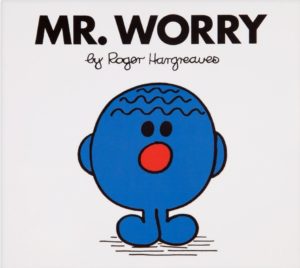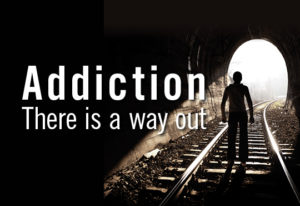Twin Peaks is my therapy

Twin peaks is back after 25 years and in typical David Lynch style it continues to shock, confuse and amaze those who follow the series. It may have been over 25 years since the last episode was shown but it has never been far from my mind. In fact, it has taken that amount of time to process and understand much of what went on in the show all those years ago, watching the episodes many times along with the feature film ‘twin peaks: fire walk with me’. This is why I’ve decided to write about how Twin Peaks has been my therapy.
So, why do I consider this surreal show therapy? Television in itself is hypnosis. When we are glued to that box we are taken places within our own minds and imagination. There is, however, no other show that hypnotises quite like twin peaks. One of the reasons I have watched the shows so many times is because I found that it relaxes me and opens my mind creatively. I have had some of my best creative ideas watching twin peaks. From the surreal images to the haunting and relaxing music of Angelo Badalamenti I can be taken right into the depths of my subconscious mind where creativity springs from. It’s quite ironic that a television series about the brutal murder of a high school prom queen can also relax and soothe the mind. Don’t get me wrong there are some very uneasy scenes of violence, horror and also hints of sexual abuse but there are so many different layers to Lynch’s film making. Of course, it isn’t just David Lynch but also Mark Frosts input that has made this such an incredible show. Forget the complexity of it. Although I don’t think there is any other show that causes so much discussion and different ideas and this in itself can be a form of therapy as it enables us to focus and think ‘outside the box’ but alongside this complexity there is also such an innocent simplicity. Many of the characters have a real innocence about them that we instantly feel a warmth and rapport and a sense of protection to their very being. Lynch/Frost use many of these characters to bring humour to the show and bring a light heartedness, that, without it would probably make the storyline too dark and foreboding. One of these innocent characters is Lucy Brennan who is the Sheriff Departments receptionist who has an on/off relationship with Deputy Andy. She has some classic one liners and, although innocent, is nobody’s fool. Her sidekick Andy is also another innocent and enchanting character and the pair of them together bring a light warmth to some of the shows darkest moments.
Many of the characters are mysterious and enchanting, like the log lady who, as her title suggests, has a log that seems to know and understand much about the events that are taking place. ‘One day soon, my log will have something to say about this’ she teases very near the beginning of season one. Sadly the actress Catherine Coulson, who played the log lady, passed away during the filming of series three but not without filming her last scenes. And after watching these scenes in the first two episodes of series three it seems she very likely filmed these scenes on her death bed where she died from complications of cancer. This, to me, shows the dedication and passion that she had to the show and to David Lynch’s work who she had worked with many times over the years. In fact the idea for the log lady first came together many many years before in 1977 on the set of Lynch’s first ever, albeit low budget, film ‘Eraserhead’ in which Coulson performed various behind the scenes functions. During the filming of ‘Eraserhead’, Lynch told Coulson that he had an image in his head of her holding a large log. Fifteen years later, he created such a role for her in Twin Peaks, on which she starred for 12 episodes through seasons 1 and 2.
Coulson went on to reprise her role in the film prequel, Twin Peaks: Fire walk with me, and in the 2017 revival. In the new series, her character (the Log Lady) appears in the first two episodes, where she passes on a message from her log for Deputy Hawk to resume the search for Agent Cooper.
There is a strong mystic element to the log lady where she almost seems to have a psychic connection to her log. Very much in the way a witch would have a familiar such as a toad or cat or a psychic would have a crystal ball as a tool or ‘prop’ to channel psychic abilities. In fact there are many spiritual aspects to twin peaks. The red room which resides inside the black lodge where agent Cooper meets Laura Palmer is almost like a plane between the earth plane and the other side. In fact, this where he gets messages from various ‘spirits’. Although it doesn’t seem you have to be necesarily dead to be in the red room. Obviously Cooper isn’t but seems to visit when in a ‘dream like state’ or sleeping (Hey, that’s hypnosis!) In a recent episode in a dramatically horrifying scene a young boy gets hit by a truck and killed and when an older character tries to comfort the grieving mother he sees the child’s spirit going up into the sky.
Lynch has also reported that during the filming of Erasurehead that is where Coulson started practicing meditation having observed Lynch himself practice the technique.
And that leads me towards why I find Twin Peaks such a therapy in itself. Meditation. Meditation is a form of self-hypnosis. Although we all naturally go into hypnosis from times to time. Maybe through day dreaming or focus (ie.watching television) or driving from A to B and suddenly arriving without any idea of how we got there, the art of meditation can bring us into much deeper depths of our subconscious mind. It is not only relaxing because it slows our body down from the strains of our everyday modern life but it is also therapeutic in the way that it lets our conscious minds switch off. It occurred to me last week when I was watching the latest episode of Twin Peaks: the return how quickly the episodes seem to fly by. A fifty minute episode (I watch without the ad breaks) literally feels like under ten minutes. As a hypnotherapist in Essex I know that when a client has been hypnotised, or indeed from my own experience of hypnosis, there seems to be hardly any concept of time. Lynch and Frost definitely seem to be giving us such an intense focus along with relaxing themes and some symbolism that are putting us into a meditative dream like state. Although I have experienced a similar phenomenon in the past with other programs it has never been to this degree. So, from the angst of my late teens where the escapism was such an intense form of escape from my problems of the time to the hypnotic and meditative relaxation of today Twin Peaks has definitely been like my own form of therapy along with the group therapy of sharing ideas and concepts about the show online with fellow peakies! Lynch and Frost you have been the most wonderful therapist. Therapy never ends and let’s hope the show goes on further too and if it doesn’t? Well I’ll just have to keep watching the episodes that have been made because with every new viewing you find something that you haven’t seen before.
For more information on hypnosis or hypnotherapy in please visit www.positivelycalm.com



